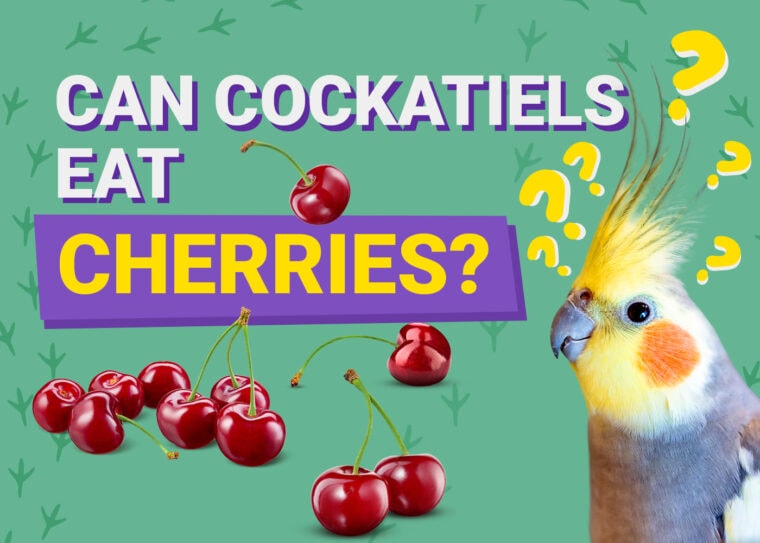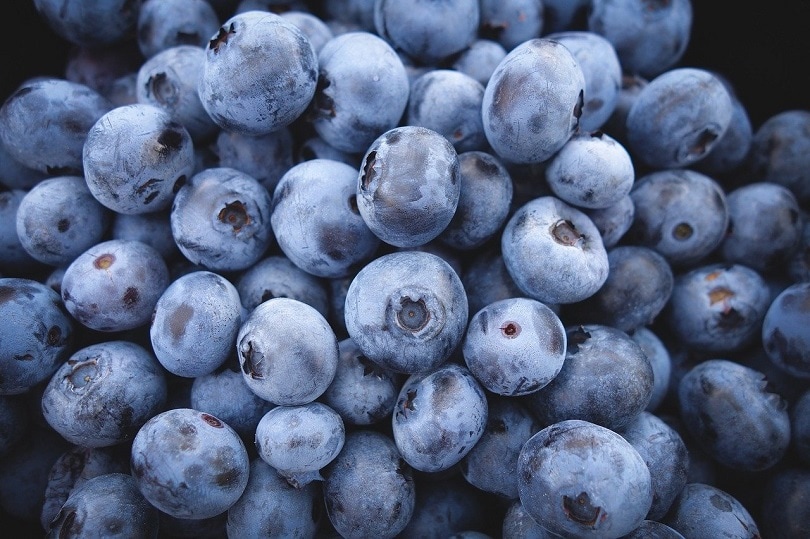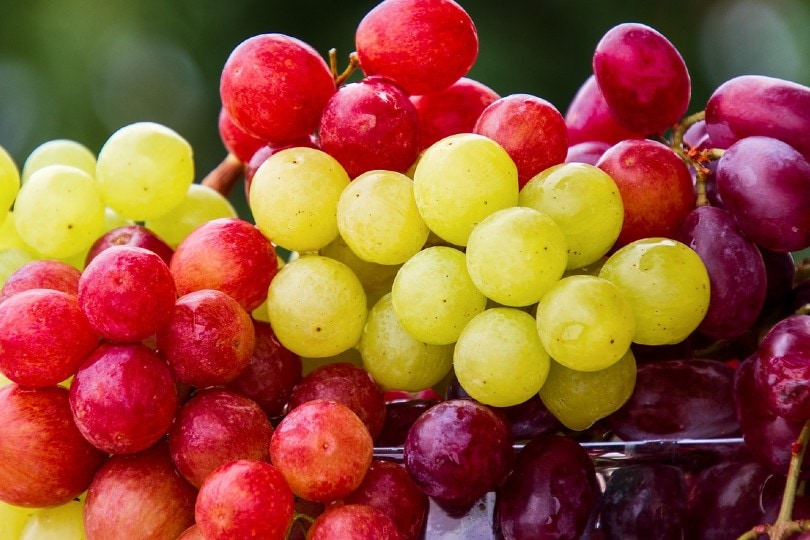
Cockatiels are friendly little birds. They make great companion pets, but they do need plenty of attention and you must ensure that they are given a healthy and well-rounded diet. Fruit should only make up approximately 5-10% of your bird’s diet, primarily because they don’t contain all the nutrition your cockatiel needs, but as long as you safely remove the pits, cherries are considered a beneficial addition to the cockatiel’s daily diet.
Are Cherries Safe?
The cherry itself is not considered toxic or dangerous to cockatiels. As such, if your bird steals a mouthful from the plate or the fruit bowl, it should not be any cause for concern. However, the pits do contain amygdalin, a compound which can convert into hydrogen cyanide in the body. While it is not in a large enough concentration to pose a risk to humans (and not a risk at all if you ingest whole cherry seeds), you should not let your cockatiel eat them.

Health Benefits of Cherries
Like most fruits, cherries are mostly water and carbohydrates in the form of sugars, but also provide some trace amounts of vitamins and minerals which are beneficial for your bird’s overall health.
Feeding your cockatiels the wrong mixture of seeds can be dangerous to their health, so we recommend checking with an expert resource like The Ultimate Guide to Cockatiels, available on Amazon.
This excellent book will help you balance your cockatiels’ food sources by understanding the value of different seed types, dietary supplements, fruits and vegetables, and cuttlebone. You’ll also find tips on everything from housing to health care!
Risks
Cherries do hold some health benefits for the cockatiel, but you should take some precautions when feeding them.
The pit of a cherry contains amygdalin, which can be converted to an organic form of cyanide if the seed is crushed while being consumed. Though likely not immediately life threatening, you should ensure that all pits are removed before feeding cherries to your cockatiel.
Fruit should only make up approximately 5-10% of a cockatiel’s diet. This is because cockatiels are natural granivores, or seed eaters. While they do need some fruit in their diet, excessive amounts of fruits eaten in a single meal can lead to diarrhea and a spike in blood sugar levels.

How to Prepare Cherries
Most parrots love the taste of cherries, so feeding them is easy. Remove the pit, cut the cherry up, and serve the fruit in a bowl.
Cherries do make a mess and the juice can stain. As such, you might want to feed this little treat in the cage and in a bowl. Be prepared to wash the red juice from your bird’s face. Alternatively, you could also offer your parrots a bathing dish; most parrots love to bathe and groom themselves.
The 4 Other Fruits You Can Feed a Cockatiel
Pellets usually make up the majority of a cockatiel’s diet. These account for about 75% of the bird’s diet. 25-30% of the diet is vegetables, nuts, legumes, pulses, grains, seeds, and a small portion of fruit. Fruits should be considered to be the least (in portion) of your cockatiel’s daily intake.
1. Blueberries

Cockatiels do enjoy fruit and especially like to eat blueberries. They are a convenient size and shape and they have a sweet taste that is appealing to your bird. Always ensure that you thoroughly wash any fruit or vegetable before feeding it, even if you do buy organic. Only feed a small amount, one blueberry cut up, and be prepared to bathe your ‘tiel after its treat.
2. Strawberries

Another potentially messy fruit, the strawberry is especially favored by most parrots, including cockatiels. Like blueberries, you should ensure that you thoroughly wash them before offering them to your pet.
3. Grapes

Grapes are also safe to give to a cockatiel. Wash them thoroughly and avoid feeding them too much. Grapes are an especially good source of vitamin K but, as with any of the fruits on this list, you should not feed too much.
4. Mango

For a tropical infusion into your cockatiel’s diet, consider offering them mangoes. The pit of the mango shouldn’t be offered to your cockatiel, but the fruit itself is safe. The only downside to mango is that it often spoils quickly once cut. Uneaten pieces should be discarded in 2 hours, and fruit bowls should be thoroughly cleaned before using them again.
Conclusion
Cockatiels benefit from a varied diet that should also incorporate some fruits. The flesh of the cherry is non-toxic for your bird, but you must remove the pit before serving it to your pet.
Like all fruits, cherries should be offered in moderation and not form the bulk of your cockatiel’s diet. Questions about your cockatiel’s diet should be directed to your avian vet to ensure that your cockatiel is receiving an appropriate diet.
See also:
- How to Take Care of Baby Cockatiels: Fact Sheet & Advice
- Can Parrots Eat Cherries? Vet-Reviewed Info to Know
Featured Image Credit: Couleur, Pixabay










